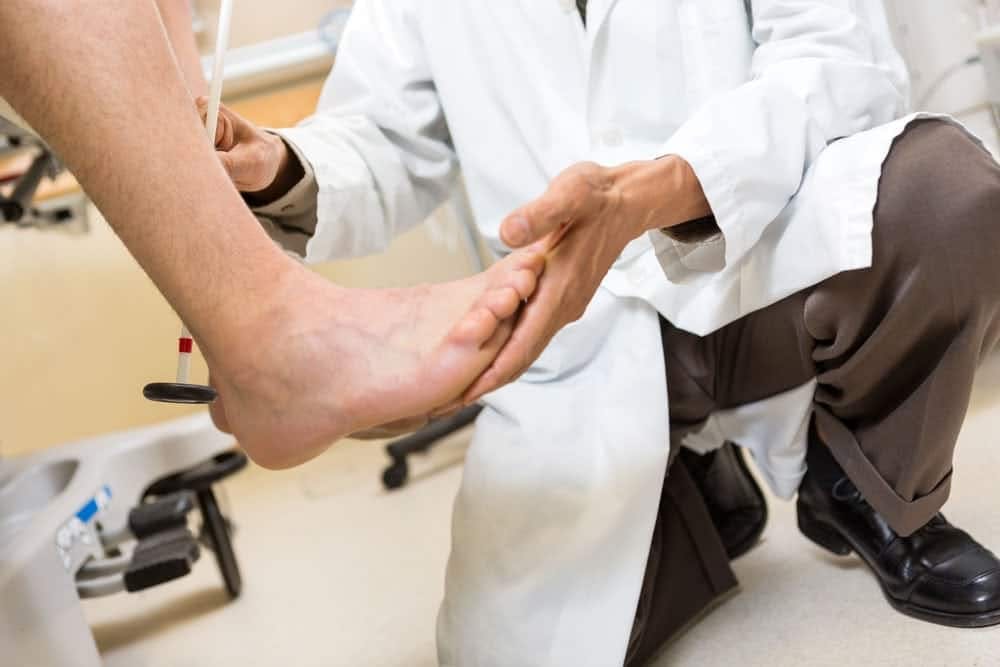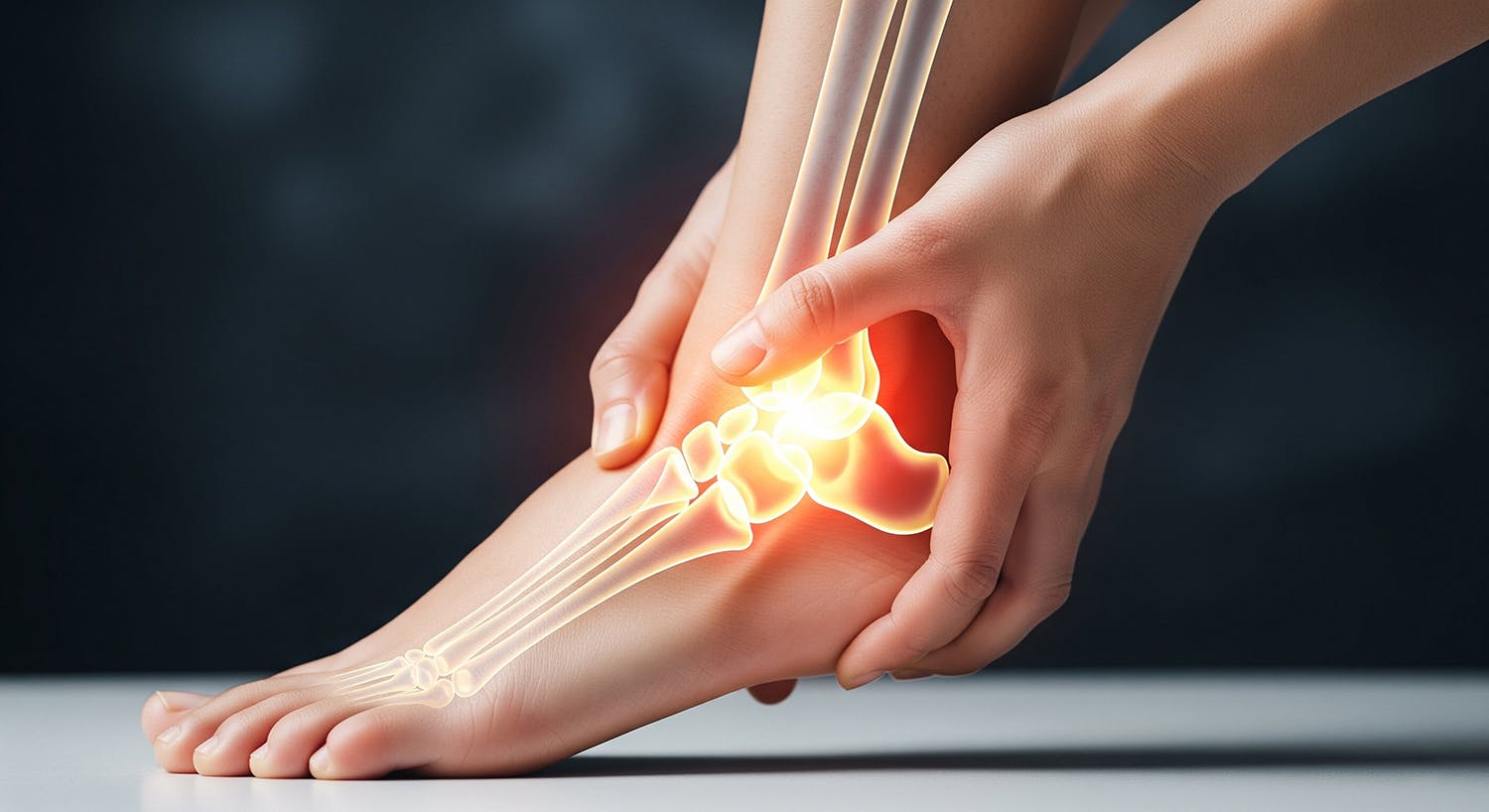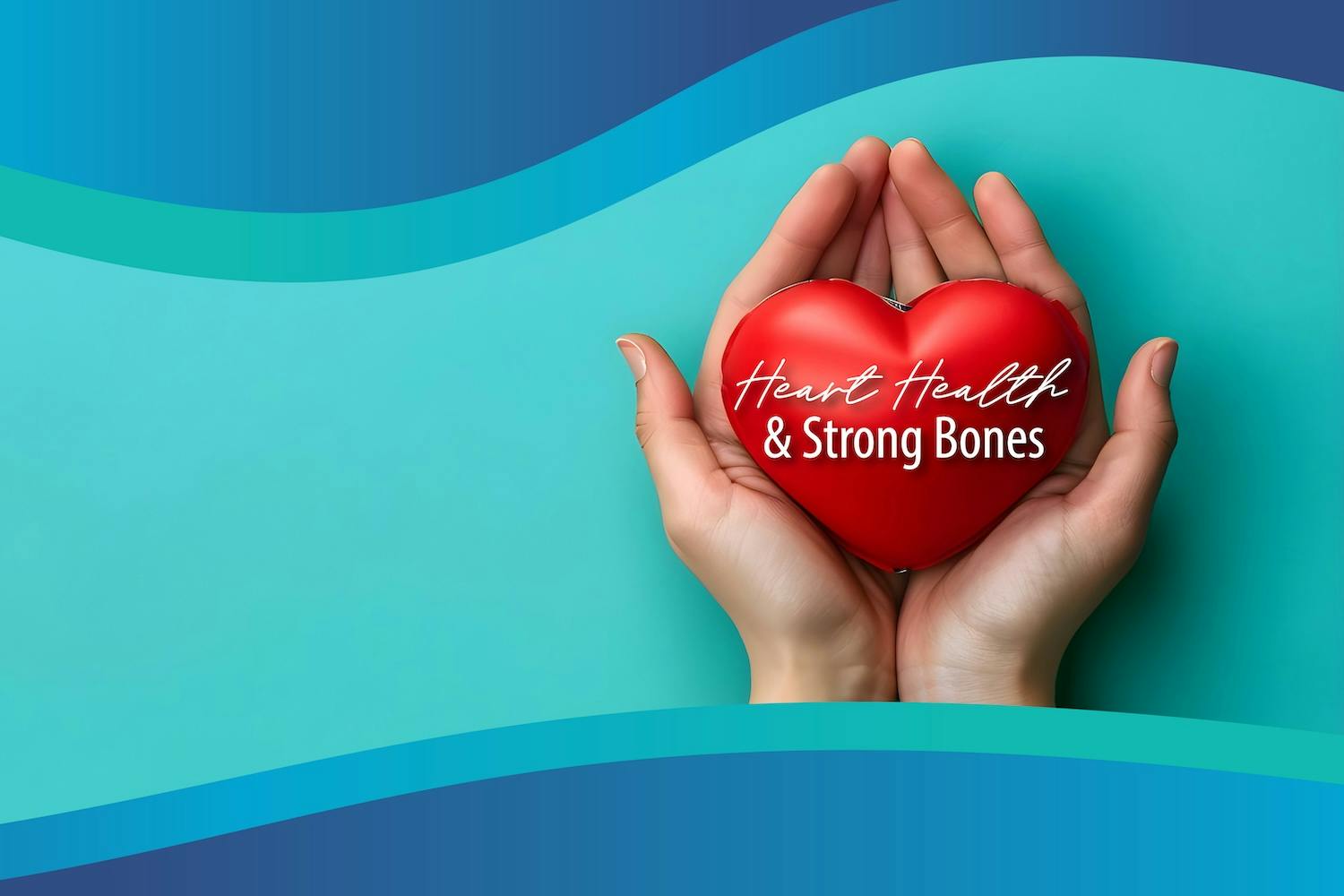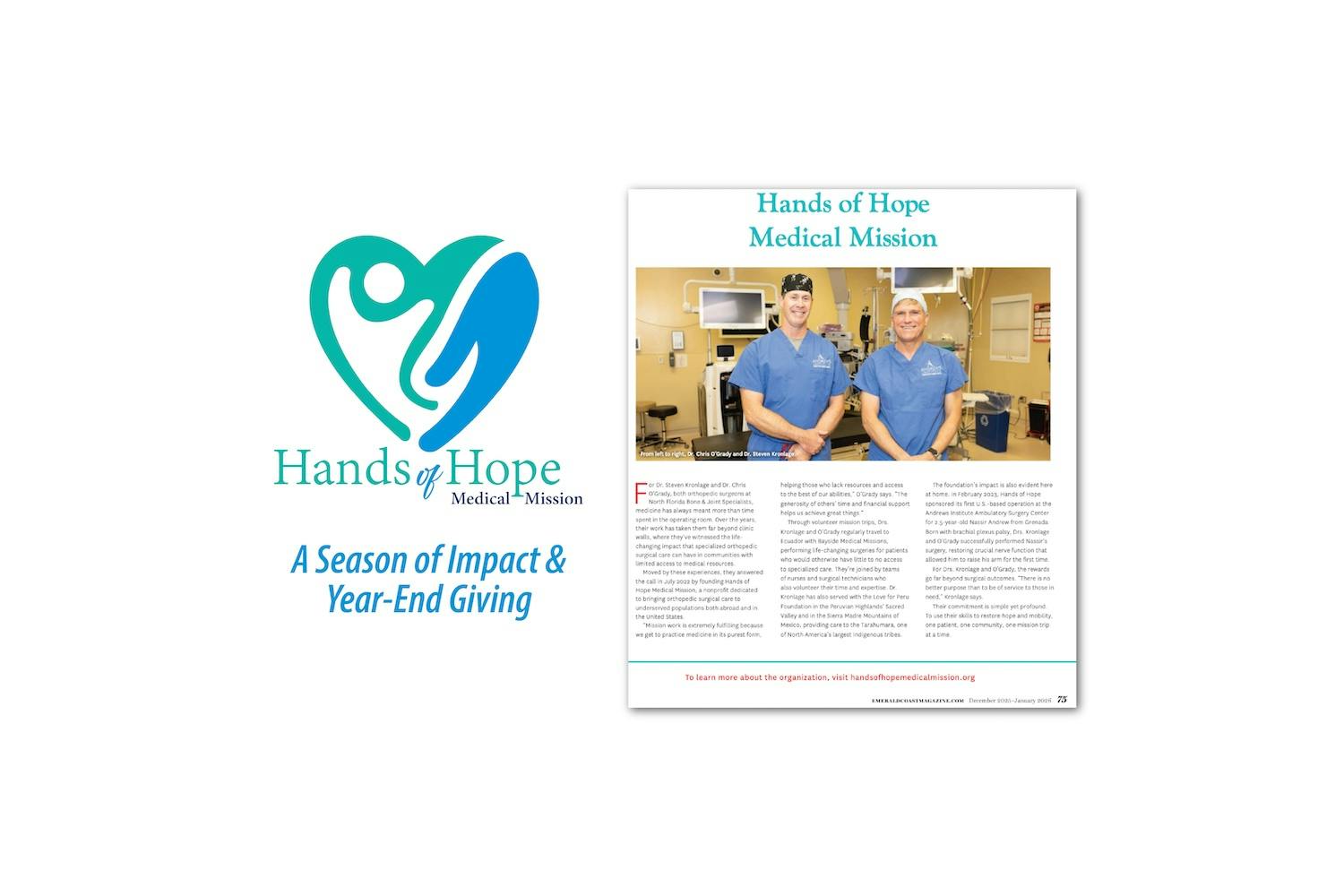- Blog
Symptoms of Achilles Tendinitis
Posted on 03-02-2026 in Achilles Tendinitis by Dr. Erik Nilssen

Posted on 03-02-2026 in Achilles Tendinitis by Dr. Erik Nilssen
Achilles tendinitis happens when the tendon that connects your heel to the back of your leg becomes painful and swollen close to the bottom of your foot. This tendon, called the Achilles tendon, enables you to push your foot down when you walk, run, or perform other movements. You use this tendon during activities, such as jumping and running.
Participating in high-impact, strenuous exercise, like running, is a common cause of Achilles tendinitis. If you ignore this condition, it can result in you rupturing or tearing your tendon. If you rupture or tear this tendon, it is crucial that you seek treatment immediately.
SYMPTOMS OF ACHILLES TENDINITIS
Pain in your tendon that gradually builds up over time is a common symptom of Achilles tendinitis. The pain you experience with this condition often starts off mild (feels more like an ache) above your heel or in the back of your leg after a sports activity, like running. More serious pain can occur after prolonged sprinting, running, or stair climbing. Other Achilles tendinitis symptoms include:
Since this condition is degenerative and often changes the structure of the tendon, as well as causes extreme pain, tearing, and serious damage, it is essential that you recognize and pay attention to your symptoms and see a doctor immediately.
CAUSES OF ACHILLES TENDINITIS
There are numerous reasons you could develop this condition. It’s easier to avoid some causes than others, but either way, getting a diagnosis early can help prevent severe injury. This condition is chronic and happens usually from overuse.
Typically, it comes on gradually with time until you experience constant pain and activity or exercise becomes too painful for you to continue. If you experience an achy or sore Achilles tendon, it’s important that you rest it right away.
Lack of flexibility in the muscles of your calves is another big contributor of this condition. This causes your muscle to shorten resulting in more tension in your tendon. Another contributor is overuse and sudden increase in activities like speedwork, training mileage, and hill running. An injury to the Achilles tendon is slow to heal due to a limited blood supply. Recognizing signs like aches, tension, or tenderness early on is an essential part of treating tendon injuries.
TREATMENTS FOR ACHILLES TENDINITIS
Self-care measures can help with tendinitis. However, if your symptoms and signs are persistent or severe, your doctor can recommend other options for treatments. If you are taking naproxen, ibuprofen or other over-the-counter pain medications and that is not enough, stronger medications might be prescribed for you to relieve pain and reduce inflammation. Other treatments offered by an ankle and foot center include physical therapy, orthotic devices, or surgery.
If you are experiencing severe or persistent pain around your Achilles tendon, you can schedule an appointment by clicking the link below. If your disability or pain is severe, get immediate medical attention. You could very well have a ruptured or torn Achilles tendon.
Download our free ebook, to learn more about the causes, symptoms, prevention, and treatment of Achilles tendinitis.

If you’ve ever sprained your ankle and thought, “this isn’t a big deal…it’s a minor injury,” you’re not alone. Ankle sprains are among the most common musculoskeletal injuries, especially in active adults and athletes. However, for some patients, what begins as a simple sprain becomes a frustrating cycle in which the ankle feels weak, unstable, and prone to “rolling” again and again. Understanding why this happens is the first step toward breaking the cycle and restoring long-term stability.

February is American Heart Month, a time to raise awareness about cardiovascular health and its far-reaching effects. While most people recognize the importance of heart health for longevity and disease prevention, fewer realize its critical role in musculoskeletal well-being. At North Florida Bone & Joint Specialists, we emphasize a comprehensive approach to orthopaedic care, recognizing that a strong heart supports strong bones and joints.

North Florida Bone & Joint Specialists is honored to share the Hands of Hope Medical Mission feature in the newly released December 2025/January 2026 issue of Emerald Coast Magazine. As part of the Medical Profiles section of this edition, the article highlights how two of our own, Dr. Steven Kronlage and Dr. Chris O'Grady, volunteer their time and talents to bring compassionate orthopaedic care to communities with limited access to medical services.